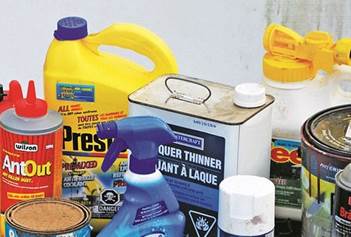
Hazardous Waste

Hazardous waste is something that poses a danger or risk to people and/or the environment. Products which are corrosive, flammable or combustible, explosive or reactive, or poisonous are considered hazardous.
Always read the labelling and follow any usage and disposal instructions carefully.
Whanganui District Council schedules four Household Hazardous Waste days each year. Pre-registration is required. Check back here for notification of the next hazardous waste collection date.
Check the list on the WDC website of hazardous waste which is accepted.
Read this 2019 article which introduced the initiative.
Most people use hazardous chemicals everyday without thinking about it.
Examples from the garage and backyard
- solvents, strippers, thinners; wood treatment or preservatives; glue; garden and pest chemicals (herbicides, fertilisers, insecticides, fungicides, pesticides, weedkillers); petrol and oil; vehicle batteries; pool chemicals
Examples from inside the house
- disinfectant or bleach; medicines; nail polish and nail polish remover; shoe polish; kitchen and oven cleaners
See chemical (household) | chemical (industrial) | agrichemical | garden chemical
There are alternatives to using hazardous products. Look for products labelled environmentally-friendly e.g. eco-cleaners, enviro-friendly garden sprays.
If you cannot find an alternative non-hazardous product
- buy only what you need (check the product recommendations)
- choose refills rather than buy new containers
Consider sharing leftover products with neighbours, friends or family (e.g. does a neighbour need some weed-killer?).
Donating to a community group for a local project.
Check with the product's manufacturer if there is a take-back scheme.
Keep from landfill wherever possible.